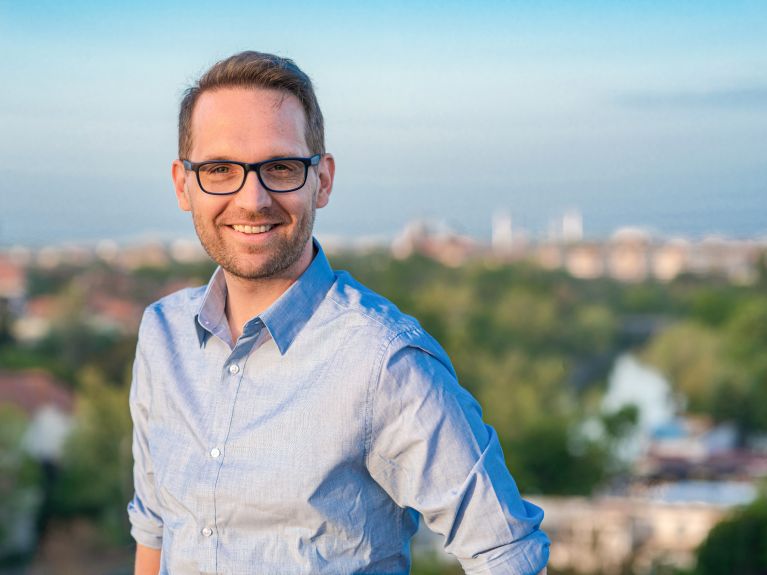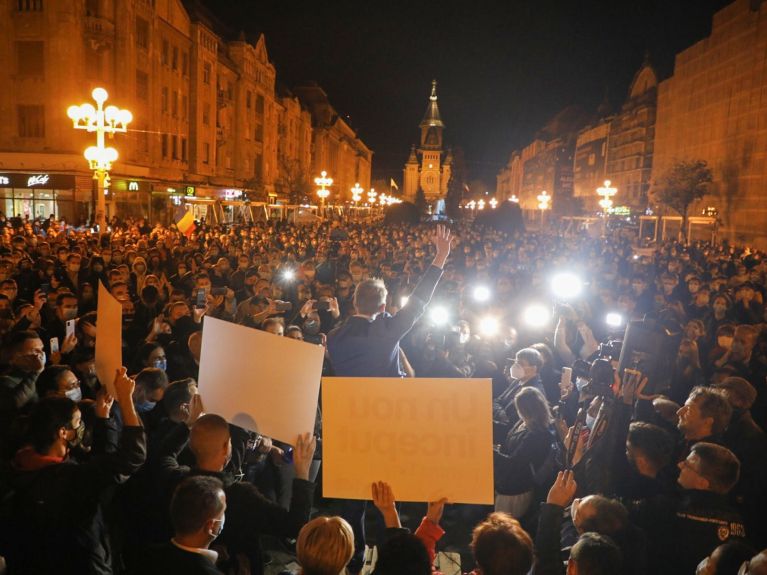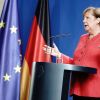“Sending the right signals”
A European mayor for a European city: Dominic Fritz from Germany is the mayor of Timisoara in Romania.

The election proved a minor sensation: in the west of Romania, the citizens of the city of Timisoara elected a German – Dominic Samuel Fritz – to be their mayor. And yet he is neither a Romanian citizen nor does he have family roots there. The 36-year-old is from the Black Forest region and took advantage of his right as an EU citizen to stand in the local elections in the town where he lives. It was during a voluntary social year that he first came to Timisoara, Romania’s third-largest city, in 2003. Fritz worked in an orphanage there, and afterwards was unable to get the city out of his mind. He learnt Romanian, kept coming back, became godfather to children of “his” children from the orphanage, founded a gospel choir. A political and management scientist, he worked for the Greens in Germany. Most recently he worked in the office of the former German President Horst Köhler, where he has been the office manager since 2016. Fritz handed in his notice in 2019, since which time he has been living in Timisoara. He stood as a candidate for the reform party “Save Romania Union” in the local elections on 27 September 2020 and immediately won 55 percent of the votes.
Mr Fritz, you are a German – and have just been elected mayor of the Romanian city of Timisoara. What have you got to give to the city?
We can create a project for the future that follows up on the city’s own past and its own values. Timisoara is a city with multicultural roots. Many innovative things have emerged here, precisely because there was diversity and because people were confronted with all kinds of different perspectives.
It is not that I will be bringing German panaceas to Timisoara. Rather I see it as my job to take the resources and energies, and the perhaps buried traditions and values, that there are here, and to make them productive again. The fact that Timisoara, an explicitly European city, now has a European mayor will open new doors to investment, tourists and collaboration in science and research. This is another area where my background may prove helpful.
The fact that Timisoara now has a European mayor will open new doors to investment.

Many Banat Swabians, that is to say members of the region’s German minority, no longer live there. Is there nonetheless still a sense in Timisoara of a certain connectedness to Germany in particular – and has that helped you?
As a matter of fact the forum of Banat Swabians did officially support me in the election campaign. That will certainly have made a difference to some people. The mood towards Germans is friendly. Romanian President Klaus Iohannis was formerly the chairman of the Forum of Germans in Romania, and for many years was the mayor of Sibiu. Many Romanians have also attended the German School, which has produced no fewer than two Nobel Prize winners. A lot of German companies have invested here, partly because they can find workers who speak German as a matter of course. So for Timisoara itself it was not such a huge deal that I am German. It fitted in well with the city’s identity.
Which projects are you planning?
One major project is that Timisoara will be the European Capital of Culture in 2023. This was supposed to happen in 2021, but because of corona it has been postponed by two years. Another project concerns the Bega Canal that flows through Timisoara, and many drainage canals around the city: we want to make them green again and create a large almost-natural network of waterways. There are lots of great ideas for how to boost the city as a centre for innovation again. The first companies that are interested in investing here have already called. These are just the right signals I want to send.


